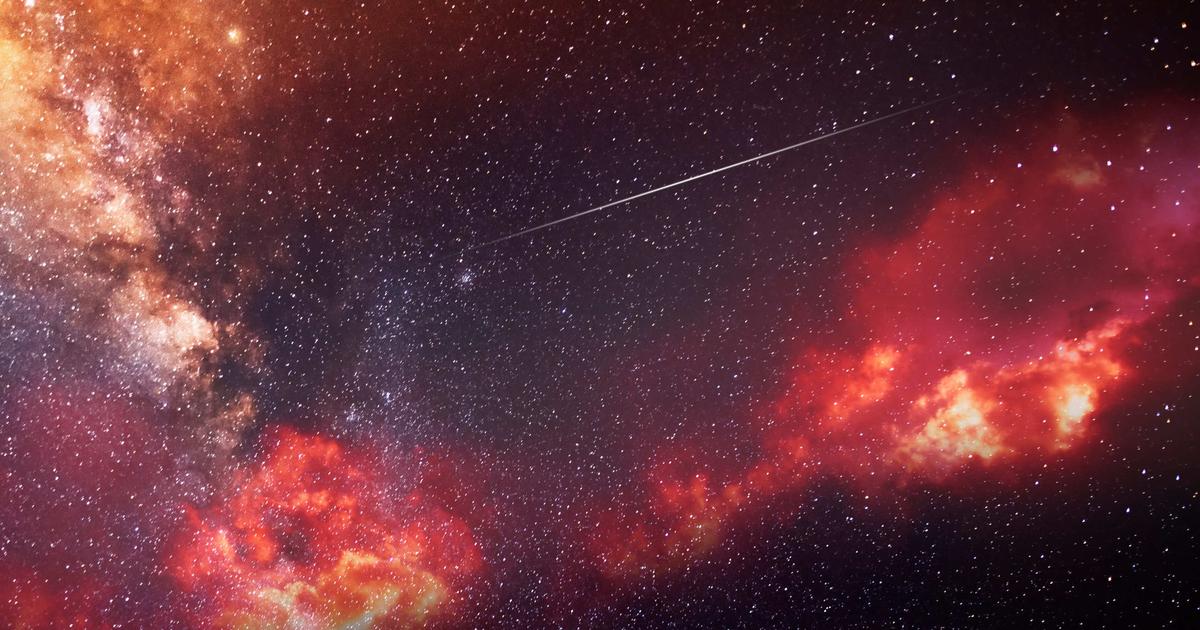Enlarge image
It took a surprisingly long time for Cli-Fi to break out of its niche and for the literature to deal with climate change to any significant extent
Photo: Andriy Onufriyenko/Getty Images
After the record summer of drought in Europe and the numerous extreme weather events on other continents, more and more people are asking themselves: How will my life develop, where do I stand between the increasing consequences of climate change and the consequences of intensifying climate policy?
Right now humanity is going through a turning point, we are seeing the great rivers Po, Loire and Rhine shrinking to rivulets - but few can imagine what this new time means for them in the long term.
Science is able to predict the further climate development with given emissions on a large scale - but not when and where a devastating heat, drought or flood catastrophe will strike, and certainly not how people and politics will react.
Rather, this is the stuff of novelists – and they are increasingly taking on the subject.
The genre has been known as "Climate Fiction" for a good decade, based on "Science Fiction".
The latest German example is the new thriller
Die Welt Kippt
by Heiko von Tschischwitz, the founder of the green electricity company Lichtblick.
Set in the years 2024-2028, the novel follows the suspenseful story of a friendship between young climate activist Tessa Hansen and successful entrepreneur Shannon O'Reilly, who invests venture capital in climate change startups.
Both are committed to the same cause, but with very different methods.
Other characters in the novel include a Green Chancellor (Robert Habeck comes to mind), the US President and a senior Chinese technology expert.
Overuse of fossil fuels was a topic in the literature as early as 1933
The book is a quick read and very suspenseful - perfect material for readers who love a light-hearted thriller, complete with multiple murders and a pinch of eroticism.
En passant, however, von Tschischwitz treats social debates in a realistic and complex manner, such as the question of the extent to which individual human rights should be subordinated to collective benefit.
He does not force any answers, but leaves it up to the readers to find their own attitude.
As early as 1933, the Canadian author Laurence Manning described in his novel
The Man Who Awoke
a future world in which the climate was ruined by the overexploitation of fossil fuels and the forests were cut down.
(Yes, the problem of global warming caused by carbon dioxide had long been a topic of research in 1933.)
Nevertheless, it took a surprisingly long time, until the turn of the millennium, for Cli-Fi to break out of its niche and for literature to deal with climate change to any significant extent - also by famous authors such as the British Ian McEwan in his novel Solar (2010) .
Perhaps it is due to the reluctance of many authors to deal more intensively with natural sciences - a reluctance that can unfortunately also be observed among many journalists outside of the science editorial offices.
In any case, the Indian writer Amitav Ghosh diagnosed in 2016 “a broader failure of imagination and culture at the heart of the climate crisis”.
Hollywood was faster than literature
Hollywood cinema was less afraid of contact, just think of Roland Emmerich's blockbuster
The Day After Tomorrow
from 2004. That could be due to the spectacular cinema images of hurricanes and floods that this topic delivers.
Scientific accuracy was usually less important.
It is all the more welcome that authors are increasingly seriously dealing with the climate crisis and, on the basis of good research, develop stories that are as realistic as possible, which bring the topic down from what is still an abstract threat for many people to the realm of what is concretely imaginable.
In
Die Welt Kippt
, China is running a mysterious large-scale project in Africa, the Western secret services and politicians are puzzled about.
At the same time, China is delivering an extremely powerful quantum computer to Bologna for the major EU project Minerva, which is intended to predict future climate developments with unprecedented detail and reliability.
There is actually such an EU project to create a “digital twin” of the earth, in reality it is called
Destination Earth
or
DestinE
for short – although there is some controversy in the climate community as to whether this is the best use of (initially) 150 million euros of climate research funds.
In general, von Tschischwitz has researched well, he knows his stuff.
His novel plays through foreseeable future developments and is similar to the large novel
The Ministry for the Future
by the well-known US author Kim Stanley Robinson, which was published a year ago.
One of these topics are geoengineering measures - targeted interventions in the earth system to counteract the consequences of climate change.
Both novels feature projects designed to limit sea-level rise – otherwise, as is well known, sea levels will continue to rise for centuries even after the world has achieved zero emissions.
At Robinson, this is a project to create artificial snowfall on Antarctica, as suggested a few years ago by my PIK colleague Anders Levermann.
This doesn't work in the novel, but an alternative is developed on Greenland to slow down the glacial flow.
And it addresses the exciting question that also worries experts: what happens when a single country unilaterally sprays aerosols into the stratosphere to dim the sun?
The role of China and the radicalization of the climate movement are dominant issues
A second issue is the radicalization of some of those affected.
In the case of von Tschischwitz, it is the climate activist Tessa who, at the beginning of the book, chains herself to the fence of the Chancellery with friends who are on hunger strike, and even tops this in the moving finale of the novel (how, shall not be revealed here).
In the case of Robinson, it is the Indian eco-terrorist group Children of Kali who, after a heatwave that killed millions in India, decided to use drones to shoot down the private jets of (influential) rich people.
Both novels are constructed in a similar way, both telling a fast-paced fictional story on multiple continents against a real factual background, while dealing with big questions of values that many readers will probably ponder for a long time.
However, they do not tell the future as a dystopia but give hope as to how the approaching climate catastrophe can still be averted.
Both are well researched and factually sound.
And both foresee very different political developments.
At Robinson, this includes a new UN organization for climate protection created in the Paris climate agreement, nicknamed the Ministry for the Future, which, in cooperation with the banks, is developing a new global currency called Carboni, in which money is created through climate protection.
The seat of this "ministry" is Zurich, which is why a large part of the novel takes place there and its Irish boss (she reminds me of Christiana Figueres, a driving force behind the Paris climate agreement) has to survive an adventurous escape on foot through the Alps after a death threat .
For von Tschischwitz, China plays a crucial role in climate change.
When the EU's Minerva project delivers the first calculation results that predict the rapid disintegration of the Antarctic ice sheet and the rise in global sea level by two meters by the year 2100, there is a stock market crash and the world finally wakes up and begins the climate crisis with the survival needs to be treated as a priority.
On this point, however, I have my doubts.
The Intergovernmental Panel on Climate Change (IPCC) is already saying in its current report that two meters cannot be ruled out by 2100.
I'm afraid the world wouldn't react much differently if this danger became a largely reliable prediction - especially since two meters of future rise are already almost certain today, just not in the year 2100.
The feature film
Don't Look Up
by Leonardo DiCaprio, which is well worth seeing, satirized the mechanisms of social repression that are taking place today - using the example of the reaction to a meteorite that is hurtling towards the earth and will almost certainly destroy it to a large extent.
In the meantime, various film clips of real TV interviews on the climate crisis are circulating on the Internet, which
are shockingly similar to the bizarre interview with two researchers on breakfast television in
Don't Look Up .
I would recommend these novels to anyone.
Such novels are fiction, but help to make a different future imaginable and empathetic - they thus perform an important service where the sober data curves of us climate scientists seem to have little effect.















